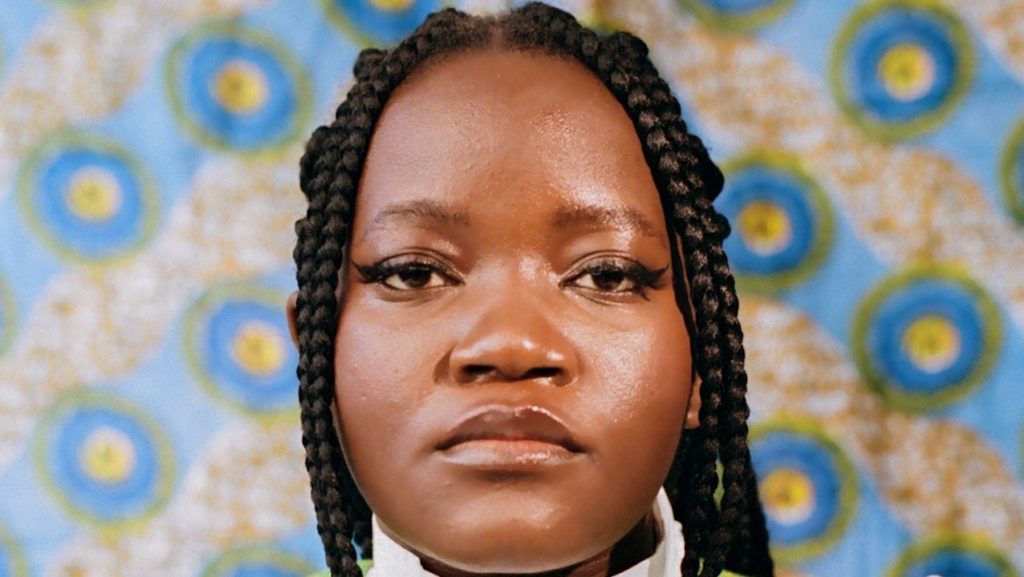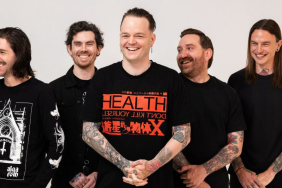Rebeca “Beckah” Amani is on the move. In just two years, she has enjoyed both local accolades and generated international buzz with her crystalline indie-pop. Now, after a series of singles, the singer-songwriter has unveiled her debut EP, April.
Beckah Amani was born in Tanzania, relocating to her parents’ Burundi home before migrating to Australia at eight. The family travelled around before eventually settling in southern Queensland. Amani started playing guitar early and by 12, the Ed Sheeran super-fan was penning songs, creating an authentic fusion of folk, indie and soul.
Beckah Amani – ‘Smoke and Mirrors’
In 2020, Amani broke out with ‘STANDARDS’, a testimony of her encounters with racism released amid global Black Lives Matter protests. She followed with equally personal songs like the self-affirming ‘Lebeka Leka’ (“Rebeca, let go” in the Kirundi language) and the wry ‘I Don’t Know Why I Don’t Leave You’, a rumination on how pop culture idealises romance (Amani, a Twihard, jokes about being Team Jacob.)
In May, Amani fulfilled a longstanding dream to move to the UK. She showcased at the Great Escape Festival, the English South by Southwest. And it was in London where Amani composed April’s title-track, allegorising the month the antipodean autumn begins. ‘April’ features her dad, whose voicemail from home prompted the lyrics.
“I was like, ‘This is literally what the EP is about,'” Amani says. “It’s about people who love you reaching out and asking you, ‘How you going, things are crazy, what’s going on, are you okay?’ and us kind of responding to that and reflecting inwardly and reflecting outwardly.”
Opening with the piano ballad ‘Smoke And Mirrors’ – produced by the indie-folk artist Matt Corby – April includes the aforementioned singles plus an orchestral version of ‘STANDARDS’. Conspicuously, Amani expands her sound, with ‘Waiting For You’ revealing an Afrobeats swing.
Recently, Amani returned to Australia for a maiden national tour, appearing at BIGSOUND and supporting Big Scary on their Daisy/Me & You headline run. Amani Zoomed Music Feeds to chat about April and more.

Music Feeds: If you were doing a biopic, maybe 10, 20 years down the line, what would the big storyline be?
Beckah Amani: Oh, my goodness. Obviously moving to Australia was a big thing. It was a big thing for our family. But I would say moving around a lot – I moved around a lot in Australia. There was a lot of moving around, which made me really close to my family and my siblings.
I’d say music was pretty consistent with all the changes that were going on in my life. It was a place that was very familiar and very consistent; same as my family as well. I’d say that really a love for stories was brought out with these experiences, and that’s what I try to do with my music.
MF: I was fascinated about you namechecking Ed Sheeran as an influence. You were even an Avril Lavigne fan. But you’ve mentioned Kendrick Lamar as well. Very eclectic taste. I wondered how you’ve actually developed your own style and voice, because you don’t sound like any of those artists.
Beckah: Yeah, I think I’m still very much in a stage where I’m developing what is that “Beckah Amani sound.” But, for me, with those two artists [Sheeran and Lavigne], it goes back to lyrics and storytelling. They’re very nuanced with their writing. Especially Ed Sheeran. He does focus a lot on telling a story; a really beautiful story. And that’s where for me songwriting began, just telling stories and saying what’s on my mind or what I feel and all that stuff.
Then, going deeper [with the] lyrics, looking at Kendrick and sometimes J Cole and Nina Simone, with things that are really personal and I guess kind of a reflection of society and the way that we live and move in the world. I think I do take a lot of inspiration from them.
MF: Something that often comes up with people who belong to a diaspora is that there’s pressure to assimilate – to be an “Aussie.” Sometimes you lose a bit of yourself in that process. How have you managed to stay connected to your heritage? I imagine community is a huge part of that, because you can hear the influence on April.
Beckah: Yeah, I think this EP was actually a big part of me reconnecting with my heritage and reconnecting with where I’m from and reconnecting with my parents. I did grow up speaking the language. Music is a big part of my family. So I grew up singing a lot of African music. I grew up listening to it as well, because that’s what my parents do and something they shared with us.
But, you know, from about 12 to 18, I would say I really struggled to connect with my heritage because it was about assimilating. I touched on that a little bit in ‘STANDARDS’, where I felt really confused about who I was and it changed a lot about my personality and how I connected with people to sort of make sense for the white communities that I grew up in. And I did grow up in rural Western Australia country. So it was particularly hard to not assimilate or not try and fit in, because there was just a lot of racism.
So language has been a big part of that, and music as well has been a big part of reconnecting back to my roots. This record has been so personally rewarding for that reason because it’s gotten me to really reconnect with who I am and where I’m from.
Beckah Amani – ‘STANDARDS’
MF: ‘STANDARDS’ was the first of your songs that many people heard. Is it hard to perform that now, because it comes from a raw place?
Beckah: When I started performing it, in like 2020 and 2021, it was hard because it still felt very, very raw – because I pretty much recorded it and then released it and then COVID happened. But then, when I got back into performing, it was a really hard song to sing.
But I think after performing it so many times and also interacting with people, then getting messages from people, I started to find it very empowering, because it is very different to all the [other] songs that I sing on my set list.
It is a moment where I feel so empowered and very proud. It’s a place that I’ve worked hard to get to. So it is a very proud moment, especially when I get to the last stanza of the song and just say that I’m proud to be Black and I’m proud to be a Black woman and standing up for our rights and things like that. It’s very, very empowering.
MF: ‘I Don’t Know Why I Don’t Leave You’ cracked me up because I am obsessed with romance – Twilight and Bridgerton. I love the humour. But it’s a wake-up call for me because I’m guilty of that idealisation.
Beckah: Oh! So am I, so am I. I mean, it’s a very real thing that I feel like, as a young person, even people like you, everyone kind of goes through [situations] where it’s like they know what’s good for them but they stick around hoping things change. But they internally know like, “Okay, I need to leave.” It’s so like, “I don’t know why I still want this” – like wanting this thing that you’ve grown up watching on TV and movies and hoping that it unfolds like that and then realising that reality isn’t like that. It really, really sucks.
But also you kind of never leave the fairytale. And that’s what the song is about. It was a very, very, very fast song – like that came really quickly; it was easy to write. But, yeah, I laugh every single time I sing it because everybody in the audience gets it as well.
MF: April almost feels like a greatest hits already. How did you approach this EP artistically? And what do you hope resonates with listeners?
Beckah: Artistically, I just reflected on how weird it is growing up in these 20 somethings, just being a young person in a time when there’s issues with the environment, there’s lots of political stress, you’re still trying to figure out what love is and what it isn’t, you’re trying to find who you are and your identity.
My hope was to create an EP that people resonate with and that they feel less alone in the world and they know that they’re not the only person feeling like, “What is going on?”, and, in the end, just think about the people around them, their loved ones who help them get through these chaotic times; who help them see the good in the bad and who really encourage them on.
It was thinking about my parents and my siblings and my friends who are always there for me in really stressful times. Yeah, I hope that listeners feel less alone and feel heard.
Beckah Amani – ‘I Don’t Know Why I Don’t Leave You’
- Beckah Amani’s debut EP, April, is out now.
Further Reading
The Best Innovators at BIGSOUND 2022
Big Scary on ‘Me and You’: “There is Much Less Ego in This Band Than There Used to Be”












